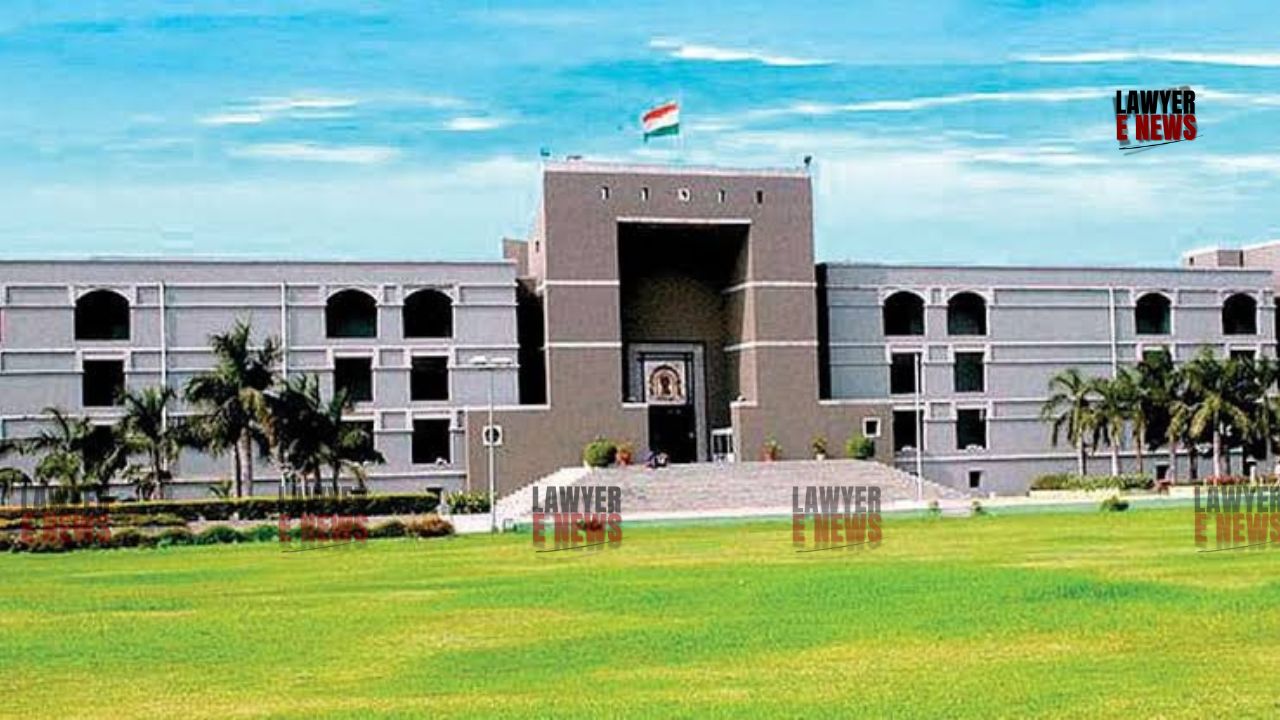-
by Admin
15 February 2026 5:35 AM



Gujarat High Court reaffirmed the priority of secured creditors under Section 26E of the SARFAESI Act, 2002, holding that such creditors' rights supersede the State's claim for VAT dues. The judgment quashed the State's attachment order over a property sold by Central Bank of India under SARFAESI proceedings, thus protecting the bank’s secured interest.
Gujarat High Court delivered a significant ruling in the case of Central Bank of India v. State of Gujarat & Ors., addressing the conflict between a secured creditor’s rights under the SARFAESI Act and the State's claim over unpaid VAT dues. The Court held that under Section 26E of the SARFAESI Act, the bank’s secured charge takes precedence over the State’s tax dues under the VAT Act, thus safeguarding the rights of the auction purchaser.
The petitioner, Central Bank of India, had extended credit facilities to Respondent No. 3, and the property in Gondal, Rajkot District, was mortgaged as security. After the borrower defaulted, the bank classified the account as a Non-Performing Asset (NPA) in 2018 and initiated proceedings under the SARFAESI Act. The property was sold in a public auction in May 2023, but the auction purchaser encountered difficulties registering the sale deed due to an attachment and charge recorded by the State for unpaid VAT dues amounting to Rs. 29,30,527 under Section 48 of the Gujarat Value Added Tax Act, 2003.
The petitioner sought relief from the Court to remove the State’s charge and permit the registration of the sale deed.
The core legal question was whether the petitioner bank, a secured creditor under the SARFAESI Act, had priority over the State’s tax dues. The relevant statutes in question were:
Section 26E of the SARFAESI Act, 2002: This provision grants secured creditors priority over all other debts, including taxes owed to the State or Central Government.
Section 48 of the Gujarat VAT Act, 2003: This section establishes a first charge in favor of the State for unpaid VAT dues.
The Court examined the petitioner’s rights as a secured creditor and the non-obstante clause in Section 26E of the SARFAESI Act, which provides that after the registration of a security interest, the debts owed to secured creditors have priority over all other debts, including government taxes.
Priority of Secured Creditors under Section 26E: The Court emphasized that Section 26E grants an overriding effect to the secured creditors' debts, meaning that such creditors’ claims must be satisfied before any claims by the State for unpaid taxes, cesses, or other dues. This provision supersedes Section 48 of the VAT Act, which creates a charge in favor of the State for tax arrears.
Non-Obstante Clause: The Court reiterated that the non-obstante clause in Section 26E overrides any conflicting provisions in other laws, including state tax legislation. The Court cited precedents where similar rulings were upheld, including Mahadev Cotton Industries vs. Department of Central Sales Tax and Punjab National Bank vs. Union of India, both affirming the superior status of secured creditors’ claims under the SARFAESI Act.
Right to Auction Sale Proceeds: The Court held that the sale conducted by the bank under SARFAESI was valid and the auction purchaser's rights should not be impeded by the State’s subsequent charge for VAT dues.
The Gujarat High Court allowed the petition and quashed the attachment order and charge recorded by the State under Entry No. 1749 in the revenue records. The Court confirmed that the petitioner bank had a first charge over the property under Section 26E of the SARFAESI Act, which takes precedence over the State's claim under the VAT Act.
The Court further held that the auction purchaser’s right to register the sale deed should not be hindered by the State’s claim, and the bank's right to recover its secured debts must be upheld. However, the State was granted liberty to pursue recovery of its dues through appropriate legal channels.
The Gujarat High Court’s ruling reinforces the principle that secured creditors' rights under the SARFAESI Act take precedence over State claims for tax dues, thereby ensuring the smooth enforcement of security interests. This judgment aligns with prior rulings from both the Supreme Court and other High Courts, further cementing the legal position regarding the priority of secured creditors in the recovery process.
Date of Decision: 24/09/2024
